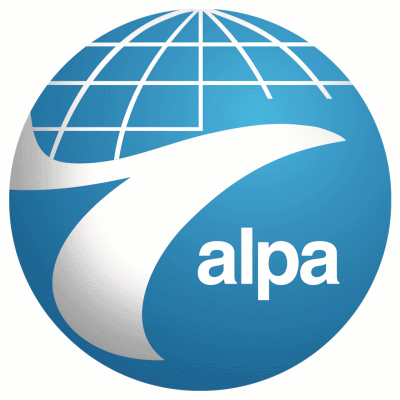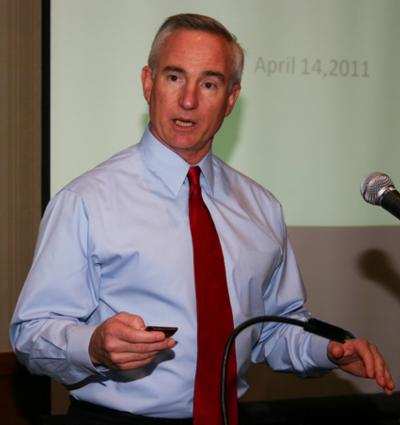Thu, Dec 11, 2014
Symposium Explores Opportunities For Aviation Growth
The Air Line Pilots Association, Int’l (ALPA) on Tuesday drew together private- and public-sector leaders to jumpstart the dialogue on how to best position the U.S. airline industry for success.

“The very nature of our business is under attack—from within and from abroad,” said ALPA president Capt. Lee Moak. “We must have a vision, a long-term plan, for how we as an industry must evolve and adapt to meet these challenges and others that we do not yet envision when they arise. We can’t simply live in the present; we must always position ourselves for future success. Right now, we are not. We must do better.”
In panel discussions throughout the day, key aviation stakeholders provided a detailed overview of challenges facing the industry and offered important solutions on topics ranging from the upcoming FAA reauthorization to evolving business models in the passenger airline industry.
Experts representing a wide range of interests expressed the critical need for stable funding to support the progress of the FAA and a collaborative approach to reauthorization that focuses attention on items most effective for moving forward. FAA Administrator Michael Huerta was also on hand to outline several priorities moving into 2015.
In a panel on foreign ownership and the current state of global competition, discussion centered on how threats by foreign governments and interests threaten to jeopardize U.S. aviation’s standing as the largest, most complex, and safest air transportation system in the world.

“We must ensure that the very laws we put in place to safeguard our industry and the jobs supporting U.S. aviation are not traded away in trade agreements or changed to favor foreign competition,” added Capt. Moak (pictured in file photo). “We must also ensure that when foreign governments fuel their airlines with billions of dollars in subsidies and other unfair government support, we have a mechanism in our agreements that allows our carriers and their workers to challenge these subsidies and ensures a level playing field for the United States.”
Debate on the safe inclusion of unmanned aircraft systems and remotely piloted aircraft into the national airspace system featured discussion on privacy concerns from the general public.
Other program highlights included the need for a collaborative approach to repositioning the regional airline model and reform to the current federal tax and fee structure that makes aviation the highest-taxed industry in the United States.
More News
He Attempted To Restart The Engine Three Times. On The Third Restart Attempt, He Noticed That Flames Were Coming Out From The Right Wing Near The Fuel Cap Analysis: The pilot repor>[...]
Make Sure You NEVER Miss A New Story From Aero-News Network Do you ever feel like you never see posts from a certain person or page on Facebook or Instagram? Here’s how you c>[...]
From 2009 (YouTube Edition): Leading Air Show Performers Give Their Best Advice for Newcomers On December 6th through December 9th, the Paris Las Vegas Hotel hosted over 1,500 air >[...]
Aero Linx: NASA ASRS ASRS captures confidential reports, analyzes the resulting aviation safety data, and disseminates vital information to the aviation community. The ASRS is an i>[...]
“For our inaugural Pylon Racing Seminar in Roswell, we were thrilled to certify 60 pilots across our six closed-course pylon race classes. Not only did this year’s PRS >[...]
 NTSB Final Report: Rutan Long-EZ
NTSB Final Report: Rutan Long-EZ ANN FAQ: Turn On Post Notifications
ANN FAQ: Turn On Post Notifications Classic Aero-TV: ICAS Perspectives - Advice for New Air Show Performers
Classic Aero-TV: ICAS Perspectives - Advice for New Air Show Performers ANN's Daily Aero-Linx (06.28.25)
ANN's Daily Aero-Linx (06.28.25) Aero-News: Quote of the Day (06.28.25)
Aero-News: Quote of the Day (06.28.25)




